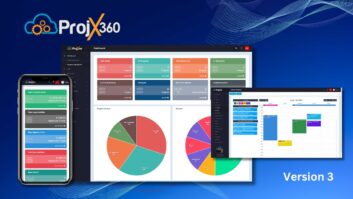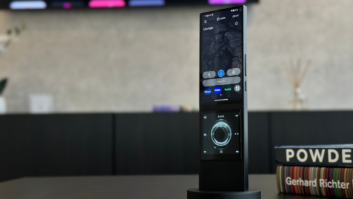Aiming to snare its fair share of the burgeoning small- and medium-size business and home office markets, IBM is now finalizing plans for a test of a store-within-a-store concept at OfficeMax which both parties announced in January.
Gearing up for a June launch, the six-month pilot will involve 30 OfficeMax stores in seven different markets, with a representative sampling of stores in small, medium and large markets. The markets chosen for the test appear to be a closely held secret and won’t be revealed until the pilot begins.
The pilot, originally slated to begin in April with six markets, now will reportedly begin around mid-June and calls for half of the 30 stores to be staffed with IBM employees, and half to have OfficeMax personnel trained by IBM. In the former scenario, all inventory costs will be carried by OfficeMax; in the latter, those costs will be carried by IBM, which will be compensated through a licensing agreement.
There was no word at press time regarding how much of the 23,500-square-foot stores’ floor space will be allotted for the store-within-a-store formats.
The IBM and OfficeMax plan could not have come at a more propitious time for both players, which are struggling to combat shrinking hardware profits by shifting to a strategy based on higher-margin tech products and services.
The Cleveland, Ohio-based OfficeMax has been pulling away from low-priced PCs for several months, winnowing its assortment from a high of more than 10 hardware SKUs to around five. And just last month, the chain said it would only offer Compaq and IBM computers at its more than 800 outlets.
“By going to just two manufacturers, we’ll be able to offer our core customers an assortment that’s tailored to their needs, not only the box and the monitor, but PC solutions,” said Mike Wiesbarth, an OfficeMax spokesman.
The chain’s revised PC strategy comes after a $50 million PC-related charge and a $6.6 million fourth-quarter ’98 loss. PC losses at OfficeMax for the entire 1998 year reached $13 million, double the $6.5 million loss in the previous year.
For IBM, the pilot could help strengthen its retail and brand profile among small business customers and articulate a more customer-focused marketing strategy — both of which it greatly needs to secure market share in this growing segment of the tech market.
Over the past few months, IBM has worked to improve and deepen its ties with retailers, especially Circuit City, Best Buy and CompUSA, after losing its exclusive deal as PC supplier to RadioShack last summer. Compaq, which reportedly not only brought more cash to the table but is helping to put RadioShack into the accessories business, is now the exclusive PC supplier for the chain.
Steve Erdman, sales VP for the Americas at IBM’s consumer division, blames both companies for not stopping to assess their respective, ongoing needs following the first year of the relationship. “I think as [the deal] got to the first year of its life cycle, neither of us adequately took the time to step back and say, ‘The customers have reacted, the marketplace has reacted, so what do we have to do to make this long term?’ Because we didn’t do that, RadioShack was enticed by Compaq,” Erdman said.
IBM currently offers consumer PCs through build-to-order kiosks at Circuit City and eventually plans to extend the kiosks to other retail giants including the office superstores, though not the OfficeMax store-within-a-store formats. “The study we’ve done has said that the consumer who’s looking for a pure build-to-order mechanism is not the same as the target for the OfficeMax store-within-a-store [program],” said Erdman.
The initiative, driven by IBM’s Consumer Division in cooperation with the Personal Systems Group, also ties into Big Blue’s evolving re-invention and repositioning of itself as an integrator and provider of solutions and services.
In the OfficeMax pilot, these “solutions” will include hardware, software, peripherals, service and support options that can be bundled and tailored to the needs of individual customers. “There will be financing and leasing alternatives, trade-ins, software integration, hardware platforms and extended warranties,” Erdman explained.
The new effort ties back to IBM’s overall focus on e-business by establishing it as a leading provider of the infra-structure, support and services that small businesses need to successfully conduct business over the net. The strategy also is in keeping with the consumer division’s new market segmentation approach, which identifies very small businesses and individuals who work at home as two of four target markets.
“The whole idea with OfficeMax is to create an environment where customers can test-drive the IBM portfolio,” Erdman said, adding that much of the feedback IBM has received from customers revolved around having a new kind of buying experience. This experience will deploy a more consultative selling approach whereby customers can discuss their needs, learn about equipment, leasing, service and connection options, sample equipment and have IBM create individualized packages specific to their particular needs.
“We’ve packaged small business bundles, turnkey solutions with some customization ability,” he said. Internet access and productivity tools, such as accounting software, are among the elements IBM will bundle.
According to Erdman, the test stores will offer a wide product assortment including home consumer products such as Aptiva desktops, ThinkPad notebooks, and peripherals such as ScrollPoint mice, as well as a portfolio of business and productivity software, including ViaVoice and Lotus titles, that target home office customers as well.
IBM also expects to offer low-end Intel-based Netfinity servers and even some commercial desktops in the test stores.
If the test goes well, the concept could be extended nationally and include more medium-sized offerings.
It is important to IBM that the pilot be successful, not just so it can secure small business market share, but to spread the e-business gospel and improve channel relations.
“OfficeMax is going to get [IBM] more of the small business and self-employed segment,” said Dave Tremblay, senior industry analyst for La Jolla, Calif.-based ZD InfoBeads. As for its probability of success, Tremblay is taking a wait-and-see approach. “We’ll have to see how it’s executed first — the devil is in the details.”
But other analysts are more openly skeptical. “My guess is this probably won’t be the best execution we’ve ever seen; [IBM] doesn’t have a history of doing these things very well,” said Rob Enderle, VP at Santa Clara, Calif.-based Giga Information Group, referring to IBM’s exclusive relationship with RadioShack. There, he said, the problem was lack of strategic execution, excess inventory issues, supplying product on time and minimal marketing dollars.
The volatility of the sub-$1,000 PC market also didn’t help. Clearly, RadioShack was addressing those first-time buyers with Aptiva and continues to do so in its current relationship with Compaq on family-oriented PCs.
Like ZD’s Tremblay, Enderle maintains the need for a tight execution in order for the plan to work. That means being able to supply inventory on time, having service and support infrastructures in place, offering adequate advertising and marketing support, and maintaining a crisp in-store presence.
“I think you’ll see something like you haven’t seen in any retail format to date,” says Mike Braun, IBM’s Consumer Division general manager. While he declined to offer specifics on the in-store look and feel or on marketing messages, Braun did say, “We will offer a unique value proposition to consumers and small business people that actually helps them with their information technology, which is so vital to their business in the age of the Internet.”
Braun added that IBM and OfficeMax will team up to offer a variety of promotional advertising and marketing including store inserts and circulars, print and radio ads touting the new offering, and some brand advertising.











